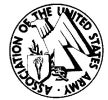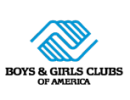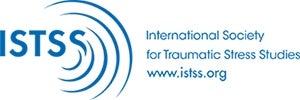The Academy on Violence and Abuse (AVA) was created to address the concerns highlighted in a 2002 report released by the Institute of Medicine (IOM). The report, which challenged the health care community to better educate and train health professionals about the often unrecognized health effects of violence and abuse, inspired a group of health care professionals to converge in effort to gain recognition and understanding for violence and abuse as health issues. AVA is a non-profit, academic, membership-based organization. AVA membership includes a variety of health care professionals, representing various facets of the health care field. AVA’s vision is that the prevention of violence and abuse, as well as its identification and care, is fully integrated into healthcare and society so that people of all ages are safer and healthier. The mission of the AVA is to advance health education and research on the prevention, recognition, and treatment of those affected by violence and abuse across the lifespan.
Strategic Partnerships
The National Center for Child Traumatic Stress works closely with National Child Traumatic Stress Network members to develop and expand comprehensive external partnerships with national organizations whose missions are closely aligned with the NCTSN mission. Major activities shared with these NCTSN strategic partners include:
- Transforming child-serving systems
- Improving the awareness, knowledge, and skills of child-serving professionals related to child trauma
- Raising public awareness about child trauma
- Advancing public policy and support for child traumatic stress treatment and services
- Supporting sustainability
- Improving child trauma research
- Developing and disseminating products for child-serving professionals
- Developing evidence-based treatments and interventions
- Influencing practice through development of protocols and guidelines
- Collecting, analyzing, and disseminating data
- Integrating child trauma resources provided to special populations of consumers or professionals
- Improving family engagement related to treatment, services, public policy, and product development
- Improving cultural and linguistic competence and family engagement
The American Academy of Pediatrics (AAP) is a professional membership organization of 63,000 primary care pediatricians, pediatric medical sub-specialists and pediatric surgical specialists dedicated to the health, safety, and well-being of infants, children, adolescents and young adults. AAP embraces its mission to attain optimal physical, mental, and social health and well-being for all infants, children, adolescents and young adults. AAP works to accomplish its mission by supporting the professional needs of its members.
Founded in 1987, The American Professional Society on the Abuse of Children (APSAC) is a national nonprofit organization that embraces its mission to enhance professionals’ ability to respond to children and families affected by abuse and violence. APSAC focuses on meeting the needs of professionals engaged in all aspects of services for maltreated children and their families. Especially important is the dissemination of state-of-the-art practice in all professional disciplines related to child abuse and neglect.
Founded in 1892, the American Psychological Association (APA) is a membership association composed of doctoral-level psychologists who work in myriad settings and seek to advance the creation, communication, and application of psychological knowledge to benefit society and improve people’s lives. The organization consists of nearly 130,000 members and 54 divisions in subfields of psychology, making APA the largest scientific and professional organization representing psychology in the United States.
Since 1950, the Association of the United States Army has worked to support all aspects of national security, while advancing the interests of America’s Army and the men and women who serve. AUSA is a private, non-profit educational organization that supports America's Army - Active, National Guard, Reserve, Civilians, Retirees, Government Civilians, Wounded Warriors, Veterans, and family members. AUSA’s mission is to represent every American soldier by being the voice for all components of America’s Army, fostering public support of the Army’s role in national security, and providing professional education and information programs.
At Boys & Girls Clubs of America, there is nothing more important than the safety of the youth we serve. Since 1860, local Boys & Girls Clubs have been embedded in their communities with one mission: enabling all young people, especially those who need us most, to reach their full potential. Today, more than 4,700 local Clubs offer safe, inclusive spaces and experiences that empower learning and growth for 4.6 million kids and teens annually. Community-based and led by professional staff, Clubs serve youth in small towns, urban areas, public housing communities, public schools, on Native lands, and U.S. military installations worldwide. Learn more and partner with us on building great futures at BGCA.org.
CWLA is a powerful coalition of hundreds of private and public agencies serving at-risk children and families since 1920. CWLA’s expertise, leadership, and innovation on policies, programs, and practices help improve the lives of millions of children across the country, with impact felt worldwide. CWLA leads and engages its network of public and private agencies and partners to advance policies, best practices, and collaborative strategies that result in better outcomes for children, youth, and families that are vulnerable. CWLA holds a vision of an America in which families, neighborhoods, communities, organizations, and federal, state, and local governments work together to ensure that all children have the opportunity to grow up healthy and strong.
Futures Without Violence is a national nonprofit organization leading groundbreaking educational programs, policies, and campaigns that empower individuals and organizations working to end violence against women and children around the world. Providing leadership from offices in San Francisco, Washington, D.C., and Boston, Futures Without Violence has trained thousands of professionals and advocates–such as doctors, nurses, judges, athletic coaches, and other community influences–on improving responses to violence and abuse. The organization was a driving force behind the passage of the Violence Against Women Act of 1994—the nation’s first comprehensive federal response to the violence that afflicts families and communities. Learn more at: www.futureswithoutviolence.org
Established by former Texas Governor James S. Hogg, The Hogg Foundation for Mental Health has been promoting mental health in Texas since 1940 by serving as an impactful grant maker and catalyst for change. Over the years, the Hogg Foundation has awarded millions of dollars in grants and scholarships to fulfill this mission and continue the Hogg family’s legacy of public service in Texas. Today, the Hogg Foundation focuses on key strategic areas with the greatest potential to benefit mental health in Texas and awards grants through a competitive proposal process. The foundation funds mental health services, scholarships, academic research, policy work, public education and outreach. The Hogg Foundation is part of the Division of Diversity and Community Engagement at The University of Texas at Austin.
The International Society for Traumatic Stress Studies is dedicated to sharing information about the effects of trauma and the discovery and dissemination of knowledge about policy, program and service initiatives that seek to reduce traumatic stressors and their immediate and long-term consequences. ISTSS provides a forum for the sharing of research, clinical strategies, public policy concerns and theoretical formulations on trauma around the world. We are the premier society for the exchange of professional knowledge and expertise in the field. Members of ISTSS include psychiatrists, psychologists, social workers, nurses, counselors, researchers, administrators, advocates, journalists, clergy, and others with an interest in the study and treatment of traumatic stress. ISTSS members come from a variety of clinical and non-clinical settings around the world, including public and private health facilities, private practice, universities, non-university research foundations and from many different cultural backgrounds.
Founded in 1909, Mental Health America (MHA) is the nation’s leading community-based non-profit dedicated to helping all Americans achieve wellness by living mentally healthier lives. MHA’s work is driven by its commitment to promote mental health as a critical part of overall wellness, including prevention services for all, early identification and intervention for those at risk, and integrated care and treatment for those who need it, with recovery as the goal. With over 200 affiliates in 41 states, MHA is a potent voice for healthy communities throughout the nation.
The MCEC is a 501(c)(3) global, nonprofit organization focused exclusively on the well-being and needs of America’s four million military-connected children, specifically in the areas of academic opportunity and excellence, school transition support, and developmental needs. Our goal is to ensure that every military-connected child grows and thrives through good and challenging times so that they are college, workplace, and, ultimately, life-ready.
The National Center for Cultural Competence (NCCC) at Georgetown University provides national leadership and contributes to the body of knowledge on cultural and linguistic competency within systems and organizations. NCCC places major emphasis on translating evidence into policy and practice for programs and personnel concerned with health and mental health care delivery, administration, education, and advocacy. In addition, the NCCC provides training, technical assistance, and consultation; contributes to knowledge through publications and research; creates tools and resources to support health and mental health care providers and systems; supports leaders to promote and sustain cultural and linguistic competency; and collaborates with an extensive network of private and public entities to advance the implementation of these concepts.
National Children’s Alliance (NCA) is the national association and accrediting body for Children’s Advocacy Centers (CACs). Formed in 1988, NCA has been providing support, technical assistance, and quality assurance for CACs, while serving as a voice for abused children for more than 25 years. A children’s advocacy center is a child-friendly facility in which law enforcement, child protection, prosecution, mental health, medical and victim advocacy professionals work together to investigate abuse, help children heal from abuse, and hold offenders accountable. Over 700 child advocacy centers in communities throughout the United States are members of NCA, serving hundreds of thousands of children yearly.
The National Council of Juvenile and Family Court Judges (NCJFCJ) works to ensure justice for every family and every child in every court throughout this country. The vital and important work of the NCJFCJ began in 1937 when a group of judges came together looking to improve the effectiveness of the nation's juvenile courts. They sought to address adoption and foster care, juvenile justice, military families, and minority issues among other concerns. One of the largest and oldest judicial membership organizations in the nation, the NCJFCJ serves an estimated 30,000 professionals in the juvenile and family justice system including judges, referees, commissioners, court masters and administrators, social and mental health workers, police, and probation officers. For those involved with juvenile, family, and domestic violence cases, the NCJFCJ provides the resources, knowledge, and training to improve the lives of families and children seeking justice.
The National Institute of Mental Health (NIMH) is part of the National Institutes of Health (NIH), the Federal government's principal biomedical and behavioral research agency, situated in the Department of Health and Human Services. NIMH seeks to transform the understanding and treatment of mental illnesses through basic and clinical research, utilizing novel scientific perspectives to further discovery in the evolving science of brain, behavior, and experience, ultimately paving the way for prevention, recovery, and cure.
Prevent Child Abuse America (preventchildabuse.org), founded in 1972 in Chicago, works to ensure the healthy development of children nationwide. The organization promotes that vision through a network of chapters in 50 states and over 600 Healthy Families America (healthyfamiliesamerica.org) sites in 40 states, the District of Columbia, American Samoa, Guam, the Northern Commonwealth of the Marianas, Puerto Rico, US Virgin Islands, and Canada. A major organizational focus is to advocate for the existence of a national policy framework and strategy for children and families while promoting evidence-based practices that prevent abuse and neglect from ever occurring.
The Carter Center, founded by former President Jimmy Carter and former First Lady Rosalynn Carter in 1982 in partnership with Emory University, is a nonpartisan organization guided by a fundamental commitment to human rights and the alleviation of human suffering. It seeks to prevent and resolve conflicts, enhance freedom and democracy, and improve health. In an effort to achieve its mission to wage peace, fight disease, and build hope, the Carter Center emphasizes action and measurable results and seeks to break new ground without duplicating the effective efforts of others. Additionally, the Center addresses difficult problems in difficult situations and recognizes the possibility of failure as an acceptable risk, while actively seeking complementary partnerships and working collaboratively with other organizations from the highest levels of government to local communities. The Carter Center believes that people can improve their own lives when provided with the necessary skills, knowledge, and access to resources.

















